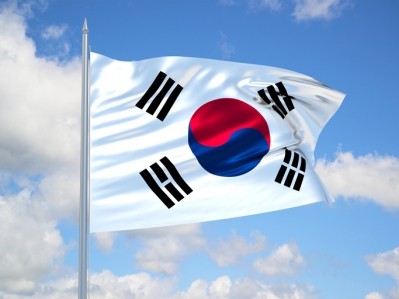Wheat, feed wheat exports from the US to continue after GMO scare for Korea, Japan

Korea’s Ministry of Food and Drug Safety and Japan’s Ministry of Agriculture, Forestry and Fisheries had taken steps to suspend or quarantine certain wheat imports from the US after the discovery of biotech, or genetically modified, wheat plants in a field in Washington, said the US Wheat Associates in a release.
The temporary pause in imports of specific wheat varieties to Japan is expected to continue until a test has been put in place, said Steve Mercer, spokesperson for the US Wheat Associates.
No other countries have announced similar restrictions to wheat imports from the incident, he said. The organization has fielded some questions from other countries including Taiwan and the EU.
“The peer-to-peer communication has been quite good,” he told FeedNavigator.
Wheat imports
As of June, Korea had contracts to import about 881,000 metric tons of feed wheat through November, reported the USDA. The overall import forecast from the department has been increased to 5.06m metric tons based on additional feed grade wheat.
The country imports wheat and feed wheat from several locations including the US, the department said.
Japan’s imports of feed wheat can range from 123,000 to 960,000 metric tons, and food grade wheat imports are about 5.5m metric tons, the department said.
Surprise wheat
Concerns about the potential of importing biotech wheat started when 22 plants containing an engineered trait were found growing in an unused field, said the Wheat Association.
The wheat found to be growing in a fallow field was confirmed to include a trait developed by Monsanto to make the plant tolerant to the herbicide glyphosate, the company said. That trait was tested in a series of field trials that ran from 1998 to 2001 in the Pacific Northwest, but the wheat strain was never commercialized.
“USDA’s Animal and Plant Health Inspection Service (APHIS) coordinated with USDA’s Agricultural Research Service (ARS) laboratory and USDA’s Grain Inspection, Packers and Stockyards Administration (GIPSA) laboratory to confirm the presence and identity of GE material in the suspect volunteer plants, and validated a test developed by the Monsanto Company for identifying the GE material in commercial grain shipments,” a USDA spokesperson told us. It is not known how the volunteer plants came to in the field, he added.
However, APHIS is continuing to review the situation and oversight of field trials for biotech products has been improved, he said. “APHIS will remain vigilant to ensure no GE wheat enters commerce from any future incidents that may occur,” he added.
Testing update
“Korea had asked millers to stop milling US wheat until they could implement their testing program early last week and at the same time they were getting a test from Monsanto and USDA for this particular event and that would also detect the previous event,” said Mercer. “These are sister events, [they are] closely related, but they needed the new test.”
Once the test was available, country officials were able to check the wheat on hand, he said. As no trace of genetically modified wheat was found in the loads tested they have been released.
“They have released that wheat and said that normal trade cadence could go on,” he said. “[There was] no significant trade disruption, no tenders canceled or ships that were stopped, so that was a favorable outcome.”
Japan has taken similar steps, said Mercer. Officials are holding US wheat until it can be tested and tenders of US white wheat have been suspended until that process is in place.
If testing in Japan also fails to locate the biotech wheat strains it is believed that the country will return to purchasing white wheat, he said. “They did a tender, but did not include the white wheat in that tender,” he added.
That process is expected to be in place in August, he said.












